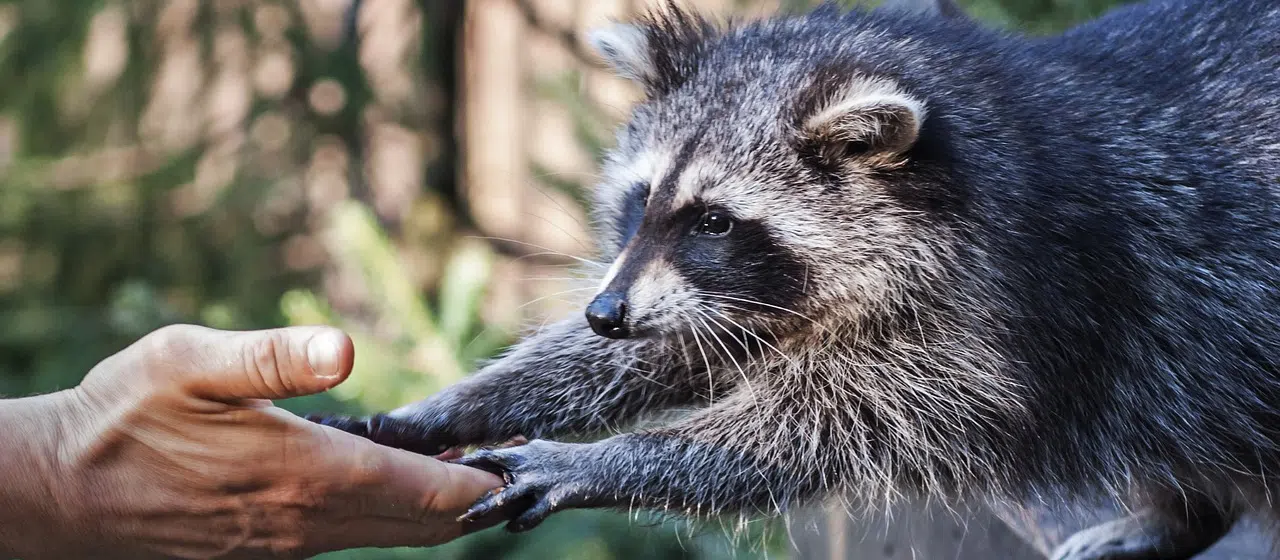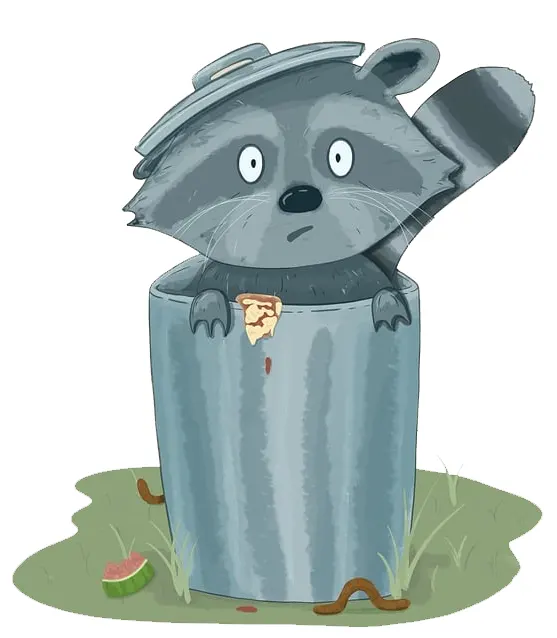Are you familiar with the trash panda? If you live in or around Toronto, the Raccoon Capital of the World, you likely are. From raiding our trash to moving into our attics, raccoons are adept and capable of thriving in our ever increasing urban environments.

What Makes Raccoons Such Successful Trash Pandas?
Raccoons are intelligent creatures, curious, and able to observe and learn. Let’s explore why and how they continue to evolve to navigate the urban jungle.
Adaptability to Urban Environments
Raccoons are by nature opportunistic scavengers. While they do actively hunt, they’re also content with someone else’s leftovers. From roadkill to trash bins, where there’s an easy meal to be had, you might well find a raccoon or five. Add to that cozy spots under decks or in sheds to build a den or have a snooze, and raccoons can really live quite happily in the city.
Highly Intelligent Behaviors
Studies have shown that raccoons watch and learn. Interestingly, it seems that the more docile (less aggressive or quieter) animals have greater success doing so. It stands to reason that while they may not be as bold and forward as their counterparts, they also don’t get spooked as easily and observe from a distance.
 Opportunistic Feeders
Opportunistic Feeders
Raccoons are omnivores with a very diverse diet and can (and will!) adapt to whatever is available. In the wild, their preference is for plant based foods when available. They consume fruits, nuts, berries and seeds with a side order of whatever presents itself. This could be other small mammals (dead or alive), birds, eggs, fish, and even insects. The ability to survive on whatever is available is precisely what makes them such successful trash pandas.
Nocturnal Habits
When rummaging through other people’s trash, one needs no witnesses. That said, a raccoon raiding your garbage under the cover of darkness isn’t exactly executing a stealthy covert operation. You may well hear some banging and clanging, along with some chitter chatter. But, being mostly nocturnal does make run-ins with pesky humans who don’t want their trash bins dumped on their deck less likely.
Nesting and Sheltering Strategies
Another plus to hanging around your homestead may be the availability of shelter. That lovely spot under your deck, your tool shed, and even your chimney make great den sites.
Interaction with Humans and Risks
The greatest risk of raccoons frequenting your home is the very real possibility of rabies transmission - to your pets and/or to you. But, raccoons can also leave behind a slew of damage to your property. This may include torn up lawns, raided gardens, torn up roof shingles, disturbed insulation, chewed wiring, and more. While not aggressive by nature, a cornered raccoon perceiving you as a threat will defend himself. Even more so, if he is a she with young ones nearby.
How to Manage a Raccoon (Trash Panda!) on Your Property
So, what should one do when confronted with the proverbial trash panda? While they can be entertaining to watch, they are not a good thing to have around.
Secure Trash and Food Sources
The single most important way to dissuade raccoons from visiting your home, is to securely lock up your trash. If at all possible, store your garbage bins inside, behind a locked door. If that’s not an option, fort-knox that lid, with bungee cords, if necessary.
Remove Attractive Nesting Sites
Old, no longer used machinery, hollow stumps, or outbuildings in disrepair can look like an invitation to the trash panda in your neighbourhood. Remove what you can and close off the rest. Check your roof for possible access points to your attic, and do a walk around your home at least twice a year. Look for any holes or weak spots that could be exploited.
Implement Habitat Modification
Habitat modification can include electric fence, motion activated lights and sprinklers, or trimmed tree branches to prevent access to your roof.
Use Deterrents and Repellents
Raccoons have a keen sense of smell. You can use that to your advantage. Scents not favoured by raccoons include hot pepper, onion, garlic, peppermint oil and Epsom salt. If you want to really go tactical, you can purchase predator urine to drive raccoons away.
Contact Hawkeye for Professional Removal
If you’ve tried the DIY methods and still can’t evict your trash panda, it may be time to call in the Professionals. Hawkeye Bird and Animal Control is here to rid you of your raccoon problems for good.















